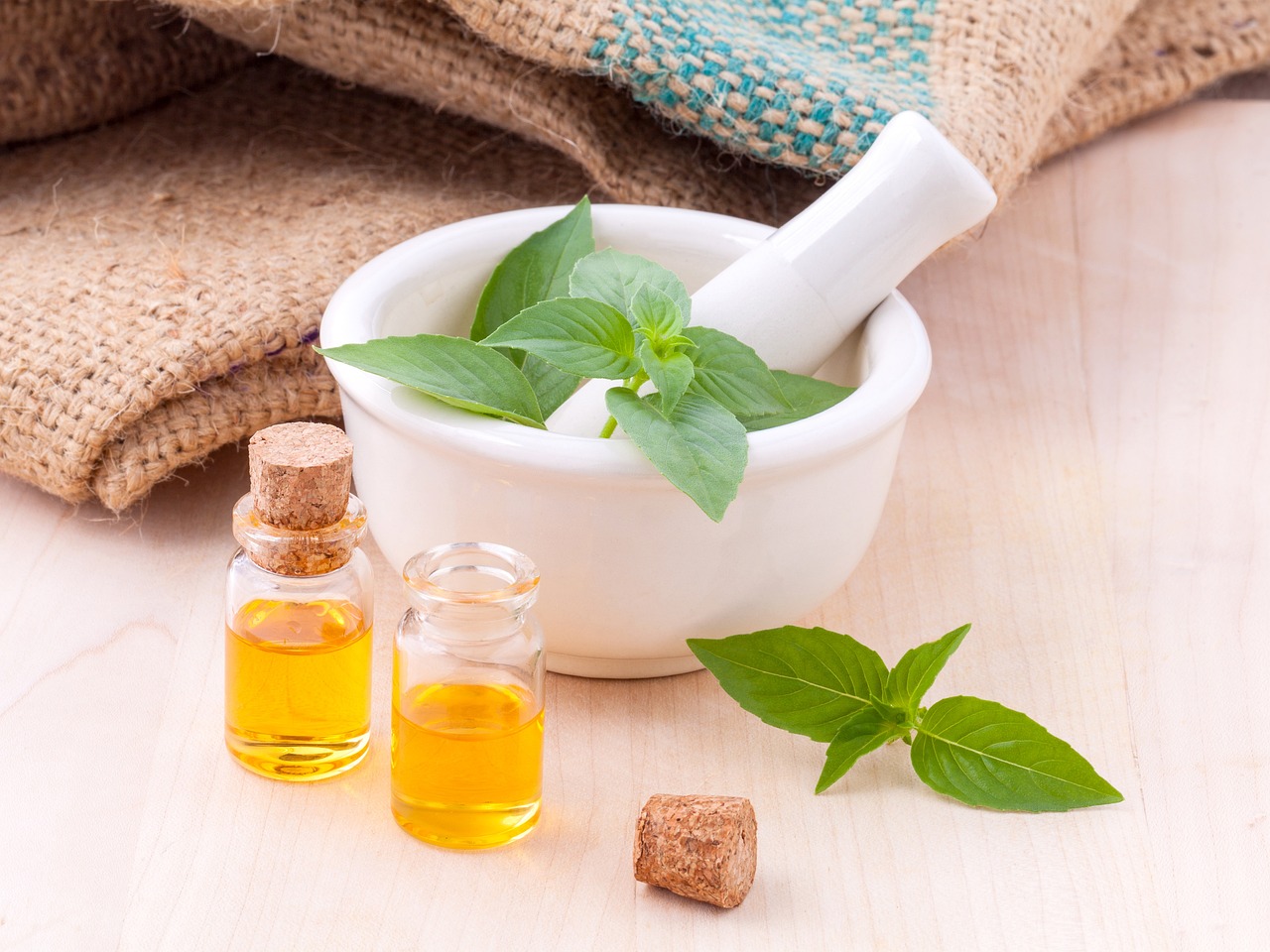Table of Contents
Our skin, the body’s largest organ, plays a vital role in protecting us from external threats, regulating body temperature and providing sensory information. To maintain its health and vitality, proper hygiene and skin care are essential. In this article, we will explore the significance of hygiene in skin care and provide practical tips for nurturing healthy skin from head to toe.
Our skin, often overlooked in its complexity, is truly remarkable. As the body’s largest organ, it serves as an incredible multifunctional shield. Its duties encompass safeguarding us from external threats, be it harmful UV rays, bacteria or environmental pollutants, while also acting as a thermostat, maintaining our body temperature within a narrow, life-sustaining range. Moreover, it’s our body’s communication center, relaying sensory information about our surroundings and experiences.
Given its vital role in our everyday life, it’s only fitting that we return the favor by taking meticulous care of our skin. Proper hygiene and skin care are not mere indulgences; they are essential components of self-preservation. In this article, we delve into the profound significance of hygiene in the realm of skin care, emphasizing that it’s not just about vanity; it’s about health, comfort and overall well-being.
Think of your skin as a resilient canvas that records your life’s journey, from the subtle touch of a loved one to the fierce rays of the sun. To ensure it remains radiant and resilient, a systematic approach to hygiene is essential. Cleansing, moisturizing and protecting your skin from the elements are not just habits; they are rituals of self-care.
A clean canvas, in this case, starts with a gentle yet effective cleansing routine. Removing accumulated dirt, sweat and pollutants helps prevent clogged pores, acne and even premature aging. However, overzealous cleansing can disrupt the skin’s natural balance, so a balanced approach is key.
Hydration is equally crucial. Just as water sustains life, it is essential for skin vitality. Proper hydration keeps your skin supple and prevents issues like dryness, itching and flaking. Moreover, it supports the skin’s natural regeneration processes, helping to maintain a youthful and healthy appearance.
Protection rounds out the trifecta. Shielding your skin from the sun’s harmful UV rays is one of the most potent anti-aging strategies available. Sunscreen, clothing and seeking shade all contribute to safeguarding your skin from potential harm.
From head to toe, our skin deserves attentive care. We’ll explore these aspects in detail in the following sections, providing practical tips and insights for nurturing your skin’s health and vitality. After all, proper hygiene and skin care are not just external practices; they are an expression of self-love and an investment in a healthier, more radiant you.
Explore this link for a more extensive examination of the topic: Keep Your Skin Healthy | NIH News in Health
The Importance of Skin Health
Before delving into hygiene and skin care practices, it’s crucial to understand why skin health matters:
Before we delve into the intricacies of effective hygiene and skincare practices, it’s essential to appreciate the profound significance of skin health. Our skin, the body’s largest organ, is not merely a protective barrier; it’s a dynamic and multifaceted component of our well-being. Here’s why skin health matters on a physical, psychological and emotional level:
1. Physical Protection: Skin serves as our body’s first line of defense against external threats. It acts as a shield, guarding us against harmful pathogens, UV radiation, pollutants and physical injuries. Maintaining healthy skin ensures that this protective barrier remains resilient and effective.
2. Thermoregulation: Skin plays a pivotal role in regulating body temperature. It assists in the cooling process through perspiration and heat dissipation, preventing overheating and heat-related illnesses. Ensuring skin health helps maintain this vital function.
3. Sensory Perception: The skin is replete with sensory receptors that enable us to perceive sensations such as touch, temperature and pain. Healthy skin ensures accurate sensory input, which is crucial for our safety and well-being.
4. Immune Function: Skin houses immune cells that contribute to our body’s defense mechanisms. Maintaining skin health supports these immune functions, helping us resist infections and heal more efficiently.
5. Psychological Well-being: Our skin’s appearance significantly impacts our self-esteem and self-confidence. Skin issues, such as acne or eczema, can affect how we perceive ourselves and how others perceive us. Healthy skin can boost self-esteem and contribute to overall psychological well-being.
6. Emotional Expression: Skin can be a canvas for emotional expression. Blushing, for example, is a physical manifestation of emotional responses. Healthy skin allows these expressions to occur naturally, enhancing our ability to convey emotions.
7. Social Interactions: The condition of our skin can influence our social interactions. Clear and healthy skin often contributes to a positive first impression, while skin issues may lead to self-consciousness or social anxiety. Skin health can impact our comfort in social settings.
8. Ageless Beauty: While aging is a natural process, maintaining skin health can help us age gracefully. Healthy skin is less prone to premature aging signs, such as wrinkles and age spots. Effective skincare practices can support long-term skin vitality.
9. Overall Well-being: Skin health is intertwined with overall well-being. Skin issues, whether minor or chronic, can be sources of physical discomfort and psychological distress. Prioritizing skin health contributes to a sense of balance and harmony in our lives.
In summary, skin health is not a superficial concern but a fundamental aspect of our physical, psychological and emotional well-being. Our skin’s multifaceted roles in protection, sensory perception, immune function and emotional expression underscore its profound importance. Understanding why skin health matters lays the foundation for adopting effective hygiene and skincare practices that promote not only physical health but also a sense of confidence, comfort and overall vitality in our daily lives.
To expand your knowledge on this subject, make sure to read on at this location: Skin care: 5 tips for healthy skin – Mayo Clinic
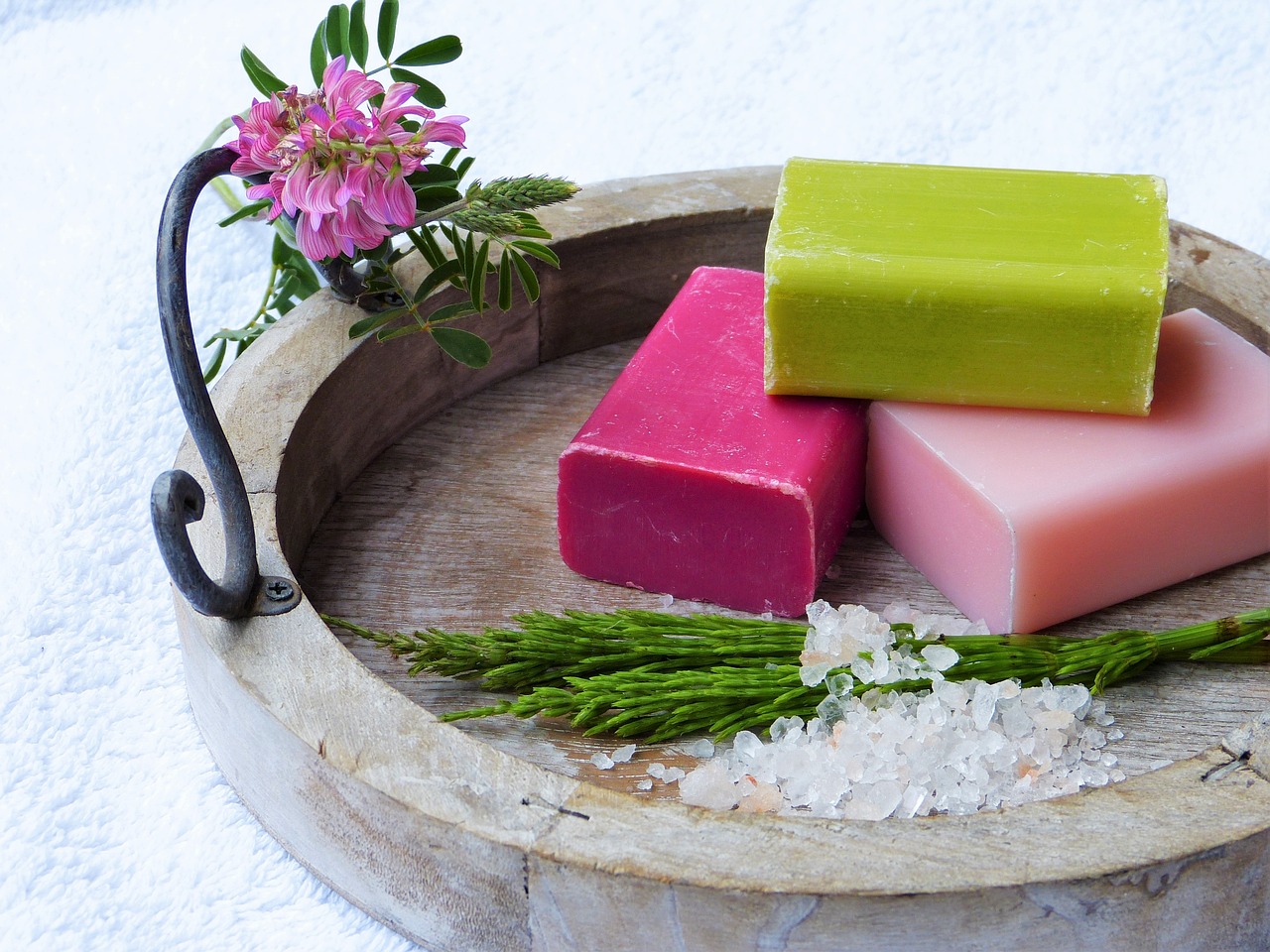
Barrier Function
Skin serves as a barrier between our internal organs and the outside world. A healthy skin barrier protects us from harmful microorganisms, pollutants and UV radiation.
Skin serves as a remarkable and multifunctional barrier between our internal organs and the outside world. It’s often referred to as the body’s largest organ for a reason, as it plays a pivotal role in maintaining our overall health and well-being. Expanding on the concept of the skin as a protective barrier:
1. Physical Shield: The skin’s outermost layer, the epidermis, acts as a physical shield that shields our body from external threats. It’s designed to keep harmful microorganisms, allergens and irritants out while retaining essential moisture and nutrients within.
2. Immune Defense: The skin is equipped with its immune system, including immune cells like Langerhans cells, which patrol for potential invaders. When these cells detect foreign substances, they initiate immune responses to neutralize threats before they can cause harm.
3. Temperature Regulation: Skin helps regulate body temperature by controlling the release of sweat. Sweating not only cools us down during hot weather or physical activity but also helps expel toxins from the body.
4. Sensory Functions: Our skin is rich in sensory nerve endings that provide crucial information about our surroundings. These nerves allow us to perceive temperature, pressure, pain and touch, enhancing our ability to interact with the environment.
5. Ultraviolet (UV) Protection: The skin produces melanin, a pigment that provides some protection against the harmful effects of UV radiation from the sun. Overexposure to UV rays can damage DNA and increase the risk of skin cancer, making the skin’s UV protection function vital.
6. Barrier Maintenance: A healthy skin barrier consists of lipids, proteins and natural moisturizing factors that work together to keep the skin hydrated and resilient. Proper skincare routines and hydration support the skin in maintaining this barrier, preventing issues like dryness, cracking or sensitivity.
7. Microbiome Management: The skin hosts a diverse microbiome of beneficial microorganisms that help protect against harmful pathogens. Maintaining a balanced skin microbiome through good hygiene practices is essential for overall skin health.
8. Wound Healing: When the skin is injured, it immediately begins the process of wound healing. Blood vessels constrict to minimize bleeding and the body sends healing cells and proteins to repair the damaged area. A well-functioning skin barrier facilitates this process.
9. Aging Gracefully: Healthy skin contributes to a youthful appearance. As we age, maintaining the skin’s barrier function becomes increasingly important to prevent moisture loss, wrinkles and the signs of aging.
10. Self-Expression: Skin can be a canvas for self-expression through tattoos, body art and cosmetics. The skin’s protective properties ensure that these artistic choices can be made safely.
In summary, our skin is a dynamic and vital organ that serves as our body’s first line of defense against external threats. Understanding and nurturing its protective functions through proper skincare, hygiene and healthy lifestyle choices is essential for maintaining overall health and well-being. By appreciating the complexity of this remarkable barrier, we can better care for and protect our skin throughout our lives.
Additionally, you can find further information on this topic by visiting this page: PENTAVITIN®

Temperature Regulation
Sweat glands in the skin help regulate body temperature. A well-maintained skin barrier ensures efficient temperature control.
The role of sweat glands in regulating body temperature is a fascinating aspect of our body’s intricate design. Let’s delve deeper into the importance of a well-maintained skin barrier and how it ensures effective temperature control, contributing to our overall health and comfort:
Natural Cooling Mechanism: Sweat glands are our body’s natural air conditioning system. When our core temperature rises due to physical activity or external heat, sweat glands release sweat onto the skin’s surface. As sweat evaporates, it dissipates heat, effectively cooling us down. A well-maintained skin barrier enhances this cooling process.
Barrier Integrity: The skin serves as a barrier that protects us from external elements, including harmful microorganisms and environmental pollutants. When the skin’s barrier is healthy and intact, it functions optimally, ensuring efficient temperature regulation. Damaged or compromised skin barriers can impede this process.
Reduced Risk of Overheating: Properly functioning sweat glands, combined with a well-maintained skin barrier, help prevent overheating, which can lead to heat exhaustion or heat stroke. By effectively cooling the body, they allow us to engage in physical activities and withstand hot conditions safely.
Balancing Act: Temperature regulation is a delicate balance. Too much sweat can lead to dehydration and electrolyte imbalances, while too little sweat can result in overheating. A healthy skin barrier supports this equilibrium by facilitating controlled sweat production.
Skin Health: A well-maintained skin barrier is essential for overall skin health. It helps prevent dryness, irritation and conditions like eczema, which can affect the skin’s ability to sweat efficiently. Healthy skin is more resilient and better equipped to manage temperature fluctuations.
Sensory Comfort: A healthy skin barrier also contributes to sensory comfort during physical activity. Skin that is well-hydrated and free from irritation or chafing allows for a more pleasant exercise experience, encouraging individuals to stay active and maintain their fitness routines.
Efficient Cooling During Exercise: Regular exercise induces sweat production as the body works harder to regulate temperature. A well-maintained skin barrier ensures that this process remains effective, preventing overheating and promoting endurance during workouts.
Adapting to Environmental Changes: Our bodies need to adapt to temperature variations, whether it’s hot, cold or humid conditions. A well-maintained skin barrier supports this adaptability, ensuring that our temperature regulation mechanisms can function optimally in diverse environments.
Hydration Matters: Maintaining proper hydration levels is closely linked to effective temperature regulation. A well-hydrated body produces sweat more efficiently, aiding in cooling. Therefore, it’s essential to stay adequately hydrated, especially during physical activities.
Overall Well-being: Effective temperature control is a vital aspect of overall well-being. It prevents discomfort, exhaustion and heat-related illnesses. A well-maintained skin barrier contributes to this well-being by supporting the body’s natural cooling mechanisms.
In summary, our skin’s sweat glands and barrier function are integral components of our body’s temperature regulation system. A well-maintained skin barrier ensures that this system operates efficiently, preventing overheating and promoting comfort during physical activities and exposure to varying environmental conditions. As we prioritize skin health and hygiene, we empower our bodies to maintain an optimal temperature balance, contributing to our overall health and well-being.
To delve further into this matter, we encourage you to check out the additional resources provided here: Keep Your Skin Healthy | NIH News in Health

Sensory Function
Skin is rich in nerve endings that provide sensory feedback. Healthy skin enhances our sense of touch, pain perception and overall sensory experience.
Our skin, often taken for granted, is a remarkable sensory organ that plays a pivotal role in shaping our experiences and interactions with the world around us. Beyond its protective functions, healthy skin enriches our lives through an intricate web of nerve endings that provide sensory feedback, contributing to our overall well-being in numerous ways.
One of the most fundamental aspects of skin’s sensory function is touch. Healthy skin is exceptionally sensitive to various tactile sensations, allowing us to feel the gentle caress of a loved one, the warmth of sunlight or the comforting embrace of a soft blanket. These sensations not only provide us with a deeper connection to our surroundings but also play a crucial role in human bonding and emotional well-being.
Moreover, our skin’s ability to perceive pain is essential for our survival. Pain sensation serves as a vital warning system, alerting us to potential harm or danger. It prompts us to react swiftly and take protective measures when necessary. Without this crucial function of our skin, we would be more susceptible to injuries and health hazards.
In addition to touch and pain perception, our skin contributes to our overall sensory experience. It allows us to feel the texture of objects, the temperature of our environment and the pressure of our surroundings. These sensory inputs influence our perception of comfort and discomfort, guiding our behavior and choices.
Furthermore, the state of our skin can also reflect our internal health. Skin conditions or changes can serve as early indicators of underlying medical issues, prompting us to seek medical attention and prevent more severe problems.
In summary, healthy skin is not just about appearance; it profoundly impacts our daily lives. It enriches our sensory experiences, fosters human connection through touch, protects us through pain perception and acts as a valuable indicator of our overall well-being. Therefore, caring for our skin is not just a matter of aesthetics but a fundamental aspect of maintaining a fulfilling and healthy life.
You can also read more about this here: Strategies to manage patients with dental anxiety and dental phobia …

Appearance
Healthy skin looks and feels good. It contributes to our self-esteem and appearance, influencing how we perceive ourselves and how others perceive us.
The significance of healthy skin goes beyond its physical health benefits; it has a profound impact on our mental and emotional well-being, as well as our interactions with others. Expanding on the idea that healthy skin contributes to self-esteem and appearance:
Boosting Self-Confidence: When our skin is healthy, we tend to feel more confident. Clear, radiant skin can make us feel good about ourselves, enhancing our self-esteem. This confidence radiates outward, affecting how we carry ourselves and interact with the world.
Positive Self-Image: A healthy complexion contributes to a positive self-image. When we look in the mirror and see clear, glowing skin, it reinforces a sense of self-worth and attractiveness. This positive self-image can influence our overall mental well-being.
Less Anxiety and Stress: Skin concerns, such as acne or eczema, can lead to anxiety and stress. Managing these conditions through proper skin care not only improves physical health but also alleviates the emotional burden associated with skin issues.
Social Comfort: Our skin’s appearance affects how comfortable we feel in social settings. Healthy skin can make us feel more at ease when interacting with others, whether in professional situations or social gatherings.
Professional Confidence: In professional settings, confidence in one’s appearance can have a significant impact. Healthy skin can boost professional confidence, making individuals feel more capable and assertive in their careers.
Positive First Impressions: First impressions are often based on appearance. Healthy skin can create a positive initial impression, whether in job interviews, meetings or social encounters. It sets the stage for favorable interactions.
Influence on Relationships: Our skin’s health can influence our personal relationships. Feeling good about our appearance can lead to improved intimacy and stronger connections with loved ones.
Radiating Positivity: When we feel good about our skin, it can radiate positivity in our interactions. Our mood and attitude can become infectious, creating a more positive atmosphere in our social and professional circles.
Empowerment: Taking control of our skin’s health through proper hygiene and skincare routines empowers us to feel proactive about our well-being. It’s a tangible way to invest in self-care and self-worth.
Respect for Body: Prioritizing skin health demonstrates a respect for our bodies. It reinforces the idea that self-care is a form of self-respect, which is essential for overall mental and emotional health.
In conclusion, the condition of our skin has a profound impact on our self-esteem, mental well-being and interpersonal relationships. Nurturing healthy skin isn’t just about physical appearance; it’s an investment in our overall quality of life. By caring for our skin, we can feel more confident, positive and empowered, ultimately influencing how we perceive ourselves and how others perceive us in a more favorable light.
Don’t stop here; you can continue your exploration by following this link for more details: Skin Care and Aging | National Institute on Aging

Daily Cleansing
Regular cleansing is essential to remove dirt, sweat and environmental pollutants from the skin’s surface. Use a mild, pH-balanced cleanser suitable for your skin type.
Regular cleansing is a cornerstone of a healthy skincare routine, offering a multitude of benefits beyond just removing surface impurities. Here’s an extended exploration of why consistent and proper cleansing is vital for maintaining radiant and resilient skin:
1. Purity and Freshness:
Effective cleansing is like a breath of fresh air for your skin. It rids your skin of the grime, sweat and pollutants that accumulate throughout the day. This process not only purifies your skin but also leaves it feeling refreshed and rejuvenated, ready to face new challenges.
2. Prevention of Skin Issues:
Consistent cleansing is key to preventing common skin issues such as acne, blackheads and blemishes. These issues often arise when pores become clogged with excess oil, dirt and dead skin cells. A mild, pH-balanced cleanser gently dissolves these impurities, reducing the risk of breakouts.
3. Skin’s Natural Balance:
The use of a pH-balanced cleanser is essential because it helps maintain the skin’s natural pH level, which is slightly acidic. A balanced pH is crucial for a healthy skin barrier. When your skin’s pH is in harmony, it can better retain moisture, fight off harmful microbes and stay resilient against environmental stressors.
4. Enhanced Product Absorption:
Proper cleansing optimizes your skin’s ability to absorb skincare products. When your skin is clean and free of barriers like dead skin cells and excess oils, it readily absorbs serums, moisturizers and treatments, allowing them to work more effectively and deliver the desired results.
5. Evening Skin Tone:
Cleansing plays a vital role in achieving an even skin tone. Removing accumulated dirt and dead skin cells reveals brighter, more radiant skin beneath. Over time, consistent cleansing can help reduce the appearance of uneven pigmentation and dullness.
6. Rejuvenation While You Sleep:
Cleansing before bedtime is especially crucial. It allows your skin to breathe and regenerate during the night. Sleeping with a clean face promotes cell turnover, repairs daily damage and ensures you wake up with a refreshed complexion.
7. Stress Reduction:
The simple act of cleansing can be a form of self-care that reduces stress. Taking a moment to cleanse your face allows you to unwind, remove the day’s stressors and promote relaxation. A calm mind often translates to healthier, more radiant skin.
8. Hydration Support:
Cleansing also prepares your skin to receive hydration. After cleansing, your skin is better able to absorb and retain moisture, helping it stay supple and preventing dryness or flakiness.
9. Long-Term Skin Health:
Consistent and proper cleansing is a long-term investment in skin health. Over time, it helps maintain the resilience and vitality of your skin, contributing to a youthful and vibrant appearance as you age.
In conclusion, regular cleansing with a suitable pH-balanced cleanser is a fundamental pillar of a comprehensive skincare routine. It purifies your skin, prevents common issues, supports your skin’s natural balance and enhances the effectiveness of skincare products. This simple yet essential practice promotes both the short-term freshness of your skin and its long-term health and beauty, allowing you to face each day with confidence and radiance.
If you’d like to dive deeper into this subject, there’s more to discover on this page: Seal of Recognition: National Psoriasis Foundation
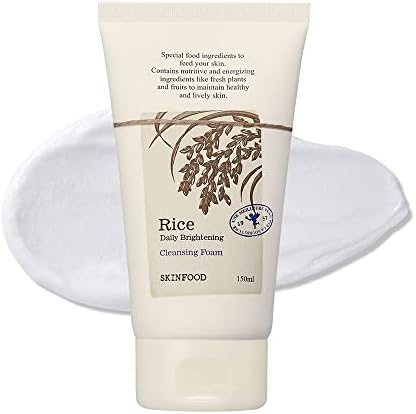
Gentle Exfoliation
Exfoliation removes dead skin cells, revealing a fresher layer underneath. However, avoid over-exfoliating, as it can damage the skin’s barrier. Limit exfoliation to 1-2 times a week.
Exfoliation is a skincare technique that offers numerous benefits, but it’s important to strike a balance to ensure it enhances your skin’s health rather than causing harm. Here’s an extended perspective on the value of exfoliation and why it’s crucial to avoid overdoing it:
Gentle Renewal: Exfoliation is like a reset button for your skin. By removing dead skin cells from the surface, it encourages cell turnover and reveals a fresher, more youthful complexion. This gentle renewal process can brighten your skin, improve texture and reduce the appearance of fine lines and blemishes.
Enhanced Product Absorption: Exfoliating your skin creates a clean canvas that allows skincare products to penetrate more effectively. Whether you’re using moisturizers, serums or treatments, exfoliated skin can absorb these products better, maximizing their benefits.
Clearer Pores: Regular exfoliation can help keep your pores clear. When dead skin cells and debris accumulate, pores can become clogged, leading to blackheads and breakouts. By exfoliating, you reduce the risk of these common skin issues.
Even Skin Tone: If you struggle with uneven skin tone, exfoliation can be a game-changer. It can help fade dark spots, sun damage and hyperpigmentation, promoting a more even complexion.
Natural Radiance: Exfoliation can unveil your skin’s natural radiance. It removes the dullness caused by dead skin cell buildup, leaving your skin looking fresher and more vibrant.
Caution with Frequency: While exfoliation has numerous benefits, it’s essential to use caution when it comes to frequency. Over-exfoliating or exfoliating too often, can disrupt the skin’s natural barrier, leading to sensitivity, dryness and redness. To strike the right balance, limit exfoliation to 1-2 times a week.
Choose the Right Exfoliant: There are different types of exfoliants, including physical (scrubs) and chemical (acids). Choosing the right exfoliant for your skin type and concerns is crucial. Those with sensitive skin may prefer gentler options, such as lactic acid or a mild scrub, while those with oily skin might benefit from salicylic acid.
Hydration is Key: After exfoliating, it’s essential to hydrate your skin. Exfoliation can temporarily weaken the skin’s moisture barrier, so applying a hydrating serum or moisturizer helps restore balance and prevent dryness.
Sun Protection: Exfoliating can make your skin more susceptible to sun damage. To protect your skin, apply sunscreen daily, especially after exfoliating. Sunscreen is essential to prevent UV rays from causing further damage to freshly exfoliated skin.
Individualized Approach: Everyone’s skin is unique, so it’s important to approach exfoliation with an individualized mindset. Pay attention to how your skin responds and adjust your exfoliation routine accordingly.
In conclusion, exfoliation is a valuable tool in your skincare arsenal when done in moderation and with consideration for your skin’s needs. By incorporating this practice into your skincare routine with care and balance, you can achieve a clearer, more radiant complexion while preserving your skin’s health and integrity.
Don’t stop here; you can continue your exploration by following this link for more details: Pure Skin Spa Facials

Proper Moisturization
Hydrating the skin is crucial for maintaining its barrier function. Choose a moisturizer that matches your skin type, whether it’s dry, oily or combination.
Maintaining the health and integrity of your skin’s barrier function is essential for its overall well-being and appearance. Hydrating your skin is a key step in achieving this and selecting the right moisturizer tailored to your skin type can make a significant difference in the results you achieve. Here’s a more in-depth look at the importance of skin hydration and choosing the appropriate moisturizer:
The Role of Skin’s Barrier Function: Your skin serves as a natural barrier between your body and the external environment. This barrier is composed of various layers and lipids that work together to retain moisture, ward off harmful microorganisms and protect against environmental factors like UV rays and pollution. When this barrier is compromised due to dryness or damage, it can lead to issues like sensitivity, redness and increased susceptibility to skin problems.
Customizing Your Moisturizer: One size does not fit all when it comes to moisturizers. The first step is understanding your skin type. Is it naturally dry, oily or a combination of both? Each skin type has unique needs:
Dry Skin: Dry skin lacks natural oils and moisture. Look for a rich, emollient moisturizer that provides long-lasting hydration and helps repair the skin’s lipid barrier.
Oily Skin: Oily skin tends to produce excess sebum. Opt for a lightweight, oil-free moisturizer that hydrates without clogging pores or exacerbating oiliness.
Combination Skin: Combination skin has both dry and oily areas. You can use different moisturizers for different parts of your face, applying a richer formula to dry areas and a lighter one to oily zones.
Ingredients Matter: Pay attention to the ingredients in your moisturizer. Look for components like hyaluronic acid, glycerin, ceramides and natural oils, which can effectively hydrate and repair the skin’s barrier. Avoid products with potential irritants or allergens if you have sensitive skin.
Consistency is Key: Make moisturizing a consistent part of your skincare routine. Apply your chosen moisturizer after cleansing and, if applicable, using serums. Use it in the morning and evening to help maintain hydration levels throughout the day and night.
Sun Protection: In your daytime routine, consider using a moisturizer with built-in sun protection (SPF) to shield your skin from UV damage. Sunscreen is an essential aspect of skin protection and hydration.
Lifestyle Factors: Remember that lifestyle factors, such as diet, hydration and environmental conditions, can also influence skin hydration. Drinking enough water, maintaining a balanced diet and avoiding excessive exposure to harsh weather conditions can complement your skincare efforts.
By prioritizing skin hydration and choosing a moisturizer tailored to your skin type, you’re taking proactive steps to support your skin’s barrier function and overall health. Healthy, well-hydrated skin not only looks radiant but also feels comfortable and is better equipped to resist the challenges posed by the external environment.
Additionally, you can find further information on this topic by visiting this page: Skin care: 5 tips for healthy skin – Mayo Clinic

Sun Protection
UV radiation from the sun can damage skin and accelerate aging. Apply broad-spectrum sunscreen with at least SPF 30 before going outside, even on cloudy days.
Shielding your skin from the sun’s harmful UV radiation is paramount for maintaining its health and youthful appearance. The application of broad-spectrum sunscreen with a minimum SPF 30 is a vital step in this protective process and it should be a year-round habit, regardless of the weather. Here’s a more in-depth exploration of the importance of sunscreen application for skin protection and age prevention:
Protection Against UV Damage: UV radiation consists of UVA and UVB rays, both of which can wreak havoc on your skin. UVA rays are responsible for premature aging, while UVB rays cause sunburn. Broad-spectrum sunscreen shields your skin from both types of radiation, preventing damage at the cellular level.
Skin Cancer Prevention: Prolonged exposure to UV radiation is a significant risk factor for skin cancer, including melanoma, the deadliest form of skin cancer. Regular sunscreen application significantly reduces the risk of skin cancer development, serving as a crucial line of defense.
Preventing Premature Aging: UV radiation accelerates the aging process of your skin. It can lead to fine lines, wrinkles, age spots and loss of skin elasticity. By consistently applying sunscreen, you can maintain a youthful appearance and slow down the signs of aging.
Maintaining Even Skin Tone: Sunscreen helps prevent the development of uneven skin tone, including dark spots and hyperpigmentation. It ensures that your skin retains its natural radiance and remains free from discoloration caused by UV exposure.
Minimizing Sunburn: Sunburn is not only painful but also damaging to your skin. Sunscreen with SPF 30 or higher provides effective protection against sunburn, even on cloudy days when UV rays can penetrate cloud cover.
Preventing Eye Damage: Sunscreen is not just for your skin; it’s also crucial for protecting the delicate skin around your eyes. UV radiation can lead to eye damage and increase the risk of cataracts. Applying sunscreen near the eyes and wearing sunglasses provides comprehensive eye protection.
Daily Routine: Incorporating sunscreen into your daily routine is essential because UV radiation can affect your skin year-round, regardless of the season. Even on overcast or winter days, harmful UV rays can penetrate clouds and reflect off surfaces, posing a continuous threat to your skin.
Anti-Aging Investment: Sunscreen is one of the most cost-effective and non-invasive anti-aging measures available. It helps you avoid the expenses associated with cosmetic procedures to repair sun damage.
Versatile Sunscreens: Sunscreens come in various formulations, including lotions, creams, sprays and even makeup with SPF. This diversity allows you to choose products that suit your skin type and preferences.
Daily Hydration: Many sunscreens also include moisturizing properties, which contribute to skin hydration. Properly moisturized skin looks healthier and is less prone to dryness and irritation.
Confidence and Peace of Mind: Wearing sunscreen gives you the confidence of knowing you’re actively protecting your skin from harm. It provides peace of mind, allowing you to enjoy outdoor activities without constant worry about sun damage.
In conclusion, the regular application of broad-spectrum sunscreen with at least SPF 30 is a vital aspect of skin protection and age prevention. It shields your skin from harmful UV radiation, reduces the risk of skin cancer and helps maintain a youthful appearance by preventing premature aging. By making sunscreen application a consistent part of your daily routine, you invest in the long-term health and well-being of your skin, ensuring that it remains vibrant, resilient and free from the damaging effects of the sun.
Additionally, you can find further information on this topic by visiting this page: Skin Care and Aging | National Institute on Aging

Hand Hygiene
Regular handwashing is essential to prevent the spread of germs. However, frequent washing can lead to dry or cracked hands. Use a moisturizing hand cream to keep skin supple.
Regular handwashing is a cornerstone of good hygiene, especially in times when preventing the spread of germs is crucial. However, the repeated use of soap and water can strip your skin of its natural oils, leaving your hands dry, cracked and uncomfortable. To strike a balance between cleanliness and skin health, consider these tips:
1. Choose a Gentle Soap: Opt for a mild, moisturizing hand soap. Harsh or antibacterial soaps can be overly drying. Look for products that are formulated to clean effectively while being gentle on the skin.
2. Proper Handwashing Technique: Practice proper handwashing technique. Use lukewarm water and lather your hands thoroughly, including the backs, between the fingers and under the nails. Scrub for at least 20 seconds before rinsing.
3. Pat Dry, Don’t Rub: After washing your hands, pat them dry with a clean towel or paper towel instead of rubbing vigorously. Rubbing can further irritate the skin.
4. Moisturize Immediately: Apply a moisturizing hand cream immediately after drying your hands. This helps lock in moisture while your skin is still damp. Look for creams with ingredients like shea butter, glycerin or ceramides, which are known for their hydrating properties.
5. Regular Application: Reapply hand cream throughout the day, especially after washing your hands or whenever they feel dry. Keep a small tube or bottle of hand cream with you for easy access.
6. Nighttime Treatment: Consider using a richer hand cream or ointment at night. Apply a generous amount, put on cotton gloves and leave them on while you sleep. This deep conditioning can help repair and rejuvenate your skin.
7. Avoid Hot Water: Hot water can be particularly harsh on the skin. Use lukewarm water for handwashing to minimize skin dryness and irritation.
8. Protective Gloves: When engaging in activities that involve exposure to harsh chemicals or excessive moisture, such as cleaning or dishwashing, wear protective gloves. This shields your hands from the damaging effects of these substances.
9. Exfoliate Gently: Occasionally, use a gentle exfoliating scrub designed for hands to remove dead skin cells. This can help your moisturizer penetrate more effectively.
10. Stay Hydrated: Adequate hydration is vital for skin health. Drink plenty of water throughout the day to keep your skin well-hydrated from the inside out.
11. Consult a Dermatologist: If you experience persistent dryness, cracking or skin conditions like eczema, consult a dermatologist. They can provide personalized recommendations and, if necessary, prescribe medicated creams or ointments to address specific concerns.
Remember that maintaining good hand hygiene is essential for your health and the well-being of those around you. By adopting these practices and using a moisturizing hand cream regularly, you can strike a balance between cleanliness and skin comfort, ensuring that your hands stay both germ-free and supple.
For additional details, consider exploring the related content available here The Art of Hygiene: Essential Practices for Optimal Health – Cura4U
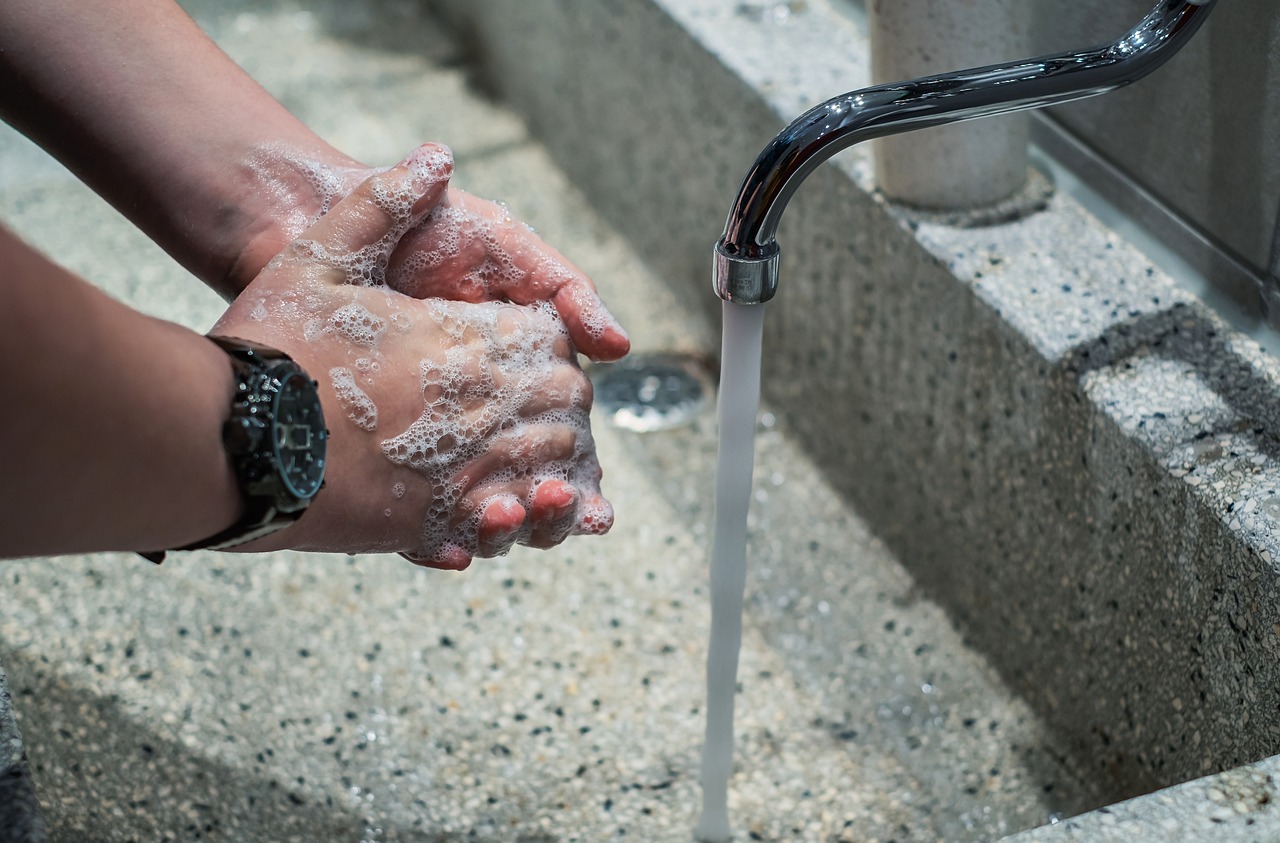
Avoid Hot Water
Hot water can strip the skin of its natural oils. Opt for lukewarm water when showering or washing your face to maintain skin hydration.
Choosing the right water temperature for your showers and facial cleansing plays a crucial role in preserving your skin’s health and hydration. Here’s a deeper look at why lukewarm water is a wise choice and how it benefits your skin:
1. Skin’s Natural Barrier: Your skin has a protective barrier composed of natural oils that keep it moisturized and shielded from external elements. Hot water can strip away these essential oils, leaving your skin vulnerable to dryness, irritation and sensitivity. Lukewarm water, on the other hand, is gentler and helps maintain this protective barrier.
2. Hydration Retention: Lukewarm water is less harsh on your skin than hot water. It helps your skin retain moisture, preventing excessive dryness. This is particularly important for those with dry or sensitive skin, as it reduces the risk of flakiness, itchiness and redness.
3. Pore Health: Extreme water temperatures can have adverse effects on your pores. Hot water can dilate your pores, making them more prone to clogging, which can lead to breakouts and acne. Lukewarm water keeps your pores in a healthier state, reducing the likelihood of pore-related skin issues.
4. Minimized Redness and Irritation: Hot water can cause temporary redness and irritation, especially for individuals with sensitive skin conditions like rosacea or eczema. Lukewarm water is milder and less likely to trigger these skin reactions, promoting a calmer and more comfortable cleansing experience.
5. Gentle Exfoliation: Lukewarm water pairs well with gentle exfoliants. It allows exfoliating products to work effectively without the harshness that hot water might introduce. This can lead to smoother, brighter skin without the risk of over-exfoliation.
6. Longer Shower Comfort: Lukewarm water ensures you can enjoy a longer, more comfortable shower or facial cleansing routine without the discomfort of hot water. This encourages thorough cleansing and skincare routines, promoting healthier skin in the long run.
7. Easier Makeup Removal: When removing makeup or sunscreen, lukewarm water helps dissolve these products effectively without excessive rubbing or scrubbing. This gentle approach minimizes the risk of damaging your skin or causing irritation.
8. Skin Tolerance: Lukewarm water is generally well-tolerated by most skin types. It strikes a balance between effective cleansing and maintaining skin health, making it suitable for daily skincare routines.
In conclusion, opting for lukewarm water when showering or washing your face is a simple yet effective way to prioritize your skin’s health and hydration. It preserves your skin’s natural oils, minimizes dryness and irritation and ensures a comfortable and effective cleansing experience. This small adjustment to your skincare routine can have a significant impact on the long-term health and appearance of your skin.
Explore this link for a more extensive examination of the topic: Eczema (atopic dermatitis) – Better Health Channel

Healthy Diet
A balanced diet rich in fruits, vegetables and antioxidants supports skin health. Stay hydrated by drinking plenty of water and reduce consumption of processed foods and excess sugar.
Maintaining a balanced diet isn’t just beneficial for your overall health; it also plays a vital role in nurturing radiant and healthy skin. Here, we’ll delve deeper into the relationship between your dietary choices and skin health, offering practical advice to help you achieve that coveted youthful glow:
1. Fruits and Vegetables: Incorporate a colorful array of fruits and vegetables into your daily meals. These natural treasures are packed with vitamins, minerals and antioxidants that combat free radicals and promote skin cell repair. Opt for leafy greens like kale and spinach, as well as vitamin C-rich options like citrus fruits and berries, to support collagen production and skin elasticity.
2. Antioxidants: Antioxidants, found abundantly in foods like berries, nuts and dark chocolate, help protect your skin from oxidative stress caused by environmental factors such as pollution and UV radiation. Including these antioxidant-rich foods in your diet can help your skin maintain a youthful appearance and resist premature aging.
3. Omega-3 Fatty Acids: Incorporate sources of omega-3 fatty acids, such as fatty fish (salmon, mackerel and sardines), flaxseeds and walnuts. These essential fats help maintain the skin’s lipid barrier, keeping it hydrated and supple.
4. Stay Hydrated: Adequate hydration is a cornerstone of skin health. Drinking plenty of water throughout the day helps maintain skin moisture and elasticity. Herbal teas and water-rich foods like cucumbers and watermelon can also contribute to your daily fluid intake.
5. Limit Processed Foods: Processed foods are often loaded with excess sugar, salt, unhealthy fats and artificial additives, all of which can contribute to skin issues. Minimize your consumption of processed snacks, sugary beverages and fast food to promote clear and healthy skin.
6. Sugar and Skin: Excess sugar consumption can lead to a process called glycation, which damages collagen and elastin in the skin, causing premature aging. Reducing your sugar intake can help prevent wrinkles and maintain a youthful complexion.
7. Skin-Friendly Herbs: Certain herbs like green tea and turmeric have anti-inflammatory and antioxidant properties that benefit the skin. Consider incorporating these herbs into your diet through teas, spice blends or supplements.
8. Balanced Portions: Maintain balanced portion sizes to prevent overeating, as excessive calorie intake can lead to weight gain and skin issues. Focus on mindful eating, savoring each bite and paying attention to your body’s hunger and fullness cues.
9. Dietary Supplements: Consult with a healthcare professional before taking any dietary supplements for your skin. In some cases, supplements like biotin, collagen or specific vitamins and minerals may be recommended to support skin health.
10. Skin-Friendly Oils: Choose healthy cooking oils like olive oil or avocado oil, which are rich in monounsaturated fats and vitamin E, contributing to skin protection and moisture.
Remember that the effects of a balanced diet on skin health may not be immediately visible, as the skin’s regeneration cycle can take several weeks. Consistency in making healthy dietary choices is key to achieving and maintaining vibrant, glowing skin. Your skin reflects your overall health, so nourish it from the inside out with wholesome, nutrient-rich foods and stay hydrated to enjoy the long-term benefits of radiant skin.
For a comprehensive look at this subject, we invite you to read more on this dedicated page: How to Keep Your Feet Healthy
Stress Management
High stress levels can negatively impact skin health. Practice stress-reduction techniques like meditation, yoga or deep breathing exercises.
High stress levels can take a toll on various aspects of your health, including your skin. The connection between stress and skin health is a clear reminder of the mind-body link, emphasizing the importance of holistic well-being. To nurture healthy, glowing skin, it’s essential to incorporate stress-reduction techniques into your daily routine, such as meditation, yoga or deep breathing exercises.
Understanding the Stress-Skin Connection: Stress triggers the release of hormones like cortisol, which can lead to increased oil production in the skin. This excess oil can clog pores, potentially causing breakouts and acne. Additionally, stress can compromise the skin’s natural barrier function, making it more susceptible to environmental damage, including UV radiation.
Meditation for Skin Serenity: Meditation is a powerful tool for reducing stress and promoting skin health. By practicing mindfulness meditation, you can calm your mind, lower cortisol levels and reduce inflammation throughout your body, including your skin. This, in turn, can help prevent or alleviate skin conditions exacerbated by stress, such as acne and eczema.
Yoga for Balance: Yoga combines physical postures with mindfulness and deep breathing, making it an excellent practice for both stress reduction and improved skin health. The gentle stretches and controlled breathing in yoga help release tension, boost circulation and enhance the skin’s natural glow. Over time, a consistent yoga practice can lead to a more radiant complexion.
Deep Breathing for Relaxation: Deep breathing exercises, such as diaphragmatic breathing or the 4-7-8 technique, are simple yet effective ways to manage stress. Deep breaths trigger the body’s relaxation response, reducing cortisol levels and promoting a sense of calm. By incorporating deep breathing into your daily routine, you can keep stress in check and support skin health.
Overall Well-Being: Beyond skin health, reducing stress through these techniques benefits your entire well-being. Lower stress levels can lead to better sleep, improved mood and enhanced overall health. When you feel good on the inside, it reflects on the outside, contributing to a healthier and more vibrant appearance.
In conclusion, the impact of stress on skin health underscores the importance of a holistic approach to well-being. By incorporating stress-reduction techniques like meditation, yoga or deep breathing exercises into your daily life, you not only improve your skin’s appearance but also nurture your overall health and vitality. It’s a simple yet powerful step toward achieving a healthy and balanced life inside and out.
For a comprehensive look at this subject, we invite you to read more on this dedicated page: Skin Care and Aging | National Institute on Aging

Proper Shaving
When shaving, use a sharp, clean razor and shaving cream or gel to prevent nicks and irritation. Shave in the direction of hair growth to minimize skin trauma.
A smooth and irritation-free shave is an art that requires precision and care. Let’s delve deeper into the best practices for achieving a close, comfortable shave:
1. Preparation is Key: Before you even pick up your razor, it’s essential to prepare your skin properly. Start by cleansing your face with warm water and a gentle cleanser to remove any dirt or oils. This helps soften the hair and open up the hair follicles, making shaving smoother.
2. Quality Tools Matter: Invest in a high-quality razor with a sharp blade. Dull blades are more likely to cause nicks, irritation and ingrown hairs. Change the blade regularly to ensure a clean, sharp cut. If you’re using a disposable razor, consider replacing it after a few uses.
3. Shaving Cream or Gel: Never skip the use of a quality shaving cream or gel. These products create a protective barrier between your skin and the razor, reducing friction and minimizing the risk of irritation. Choose a product that suits your skin type, whether it’s sensitive, dry or oily.
4. Proper Technique: Shave in the direction of hair growth whenever possible. This minimizes the risk of ingrown hairs and reduces skin trauma. For most areas of the face, this means shaving downward. However, in some areas, like the neck, hair may grow in different directions, so pay attention to the grain of your hair.
5. Light Pressure: It’s a common misconception that pressing harder will result in a closer shave. In reality, using excessive pressure can lead to irritation and razor burn. Instead, let the razor’s weight do the work and use gentle, controlled strokes.
6. Rinse Frequently: Rinse your razor frequently during shaving to remove built-up shaving cream, hair and debris. A clean razor provides a more effective and comfortable shave.
7. Post-Shave Care: After shaving, rinse your face with cool water to close the pores and remove any remaining shaving cream. Apply an alcohol-free, moisturizing aftershave or post-shave balm to soothe the skin and replenish moisture. Avoid products with alcohol, as they can be drying and irritating.
8. Hydrate: Keeping your skin well-hydrated is essential for overall skin health. Use a moisturizer daily to lock in moisture and prevent dryness or flakiness. Look for a product that suits your skin type, whether it’s oil-free, sensitive or anti-aging.
9. Ingrown Hair Prevention: To prevent ingrown hairs, exfoliate your skin regularly to remove dead skin cells that can trap hair. Use a gentle exfoliating scrub or a soft-bristle brush in circular motions. If you’re prone to ingrown hairs, consider using products with salicylic acid or glycolic acid.
By following these shaving best practices, you can achieve a smooth, irritation-free shave that leaves your skin looking and feeling its best. Remember that patience and consistency in your shaving routine will pay off in the long run, contributing to healthier, happier skin.
Explore this link for a more extensive examination of the topic: Best Body Care Products 2021: Lotions, Scrubs, and Washes …
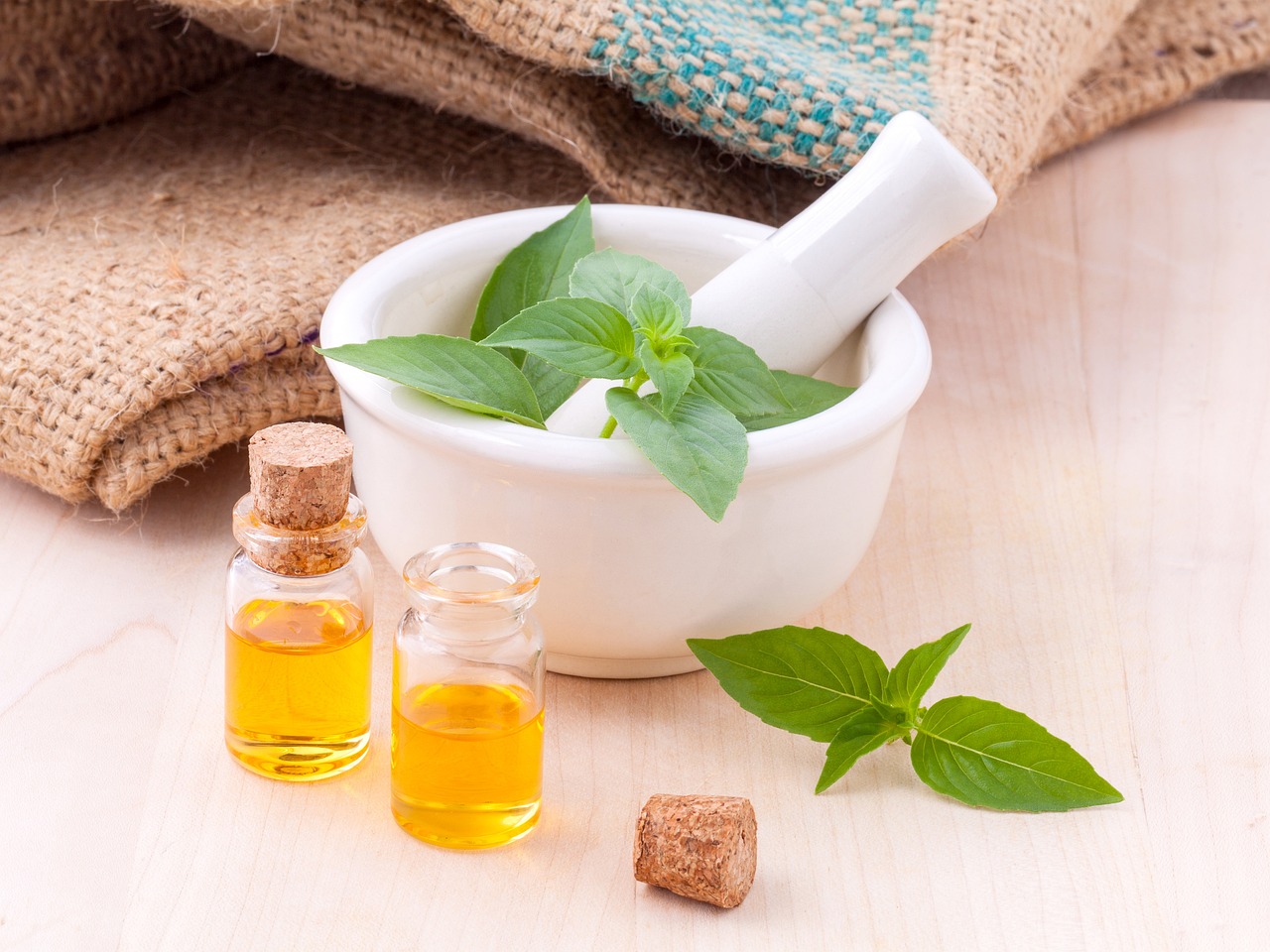
Body Hygiene
Pay attention to hygiene practices for all parts of your body, including areas prone to sweating and friction, like underarms and groin.
Comprehensive hygiene practices encompass all areas of the body, especially those that are susceptible to sweating and friction, such as the underarms and groin. Prioritizing hygiene in these regions goes beyond just comfort; it’s essential for overall well-being. Here’s why it’s vital and some practical tips for maintaining hygiene in these areas:
Preventing Skin Issues: The underarms and groin are prime locations for sweat accumulation and friction due to daily movements. Neglecting hygiene in these areas can result in skin issues like chafing, rashes and irritation. By paying attention to cleanliness, you reduce the risk of these uncomfortable conditions.
Body Odor Management: Sweat combined with bacteria on the skin’s surface can lead to body odor. Effective hygiene practices in the underarms and groin help control odor, keeping you feeling fresh and confident throughout the day.
Fungal and Bacterial Infection Prevention: Moisture and warmth create favorable conditions for the growth of fungi and bacteria. Proper hygiene reduces the risk of fungal infections like athlete’s foot and bacterial infections like folliculitis.
Improved Comfort: Maintaining cleanliness in these areas enhances daily comfort. You can move freely without the discomfort of chafing or irritation, making physical activities, exercise and daily routines more enjoyable.
Social Confidence: Feeling clean and odor-free boosts self-confidence in social interactions. You can engage with others without worrying about body odor or discomfort.
Practical Tips for Hygiene in Prone Areas:
Regular Bathing: Shower daily, paying particular attention to these areas. Use a mild, pH-balanced soap to cleanse gently without causing irritation.
Thorough Drying: After bathing, ensure these regions are completely dry. Moisture can exacerbate skin issues and create an ideal environment for fungi and bacteria to thrive.
Antiperspirants or Deodorants: Apply antiperspirants or deodorants to the underarms to control sweat and odor. Opt for products formulated for sensitive skin if needed.
Breathable Fabrics: Choose breathable and moisture-wicking fabrics for underwear and clothing. These materials help reduce friction and keep the skin drier.
Powders or Creams: Consider using talcum powder or anti-chafing creams in areas prone to friction to minimize discomfort.
Regular Clothing Changes: Change sweaty or damp clothing promptly, especially after exercise or physical activities. This prevents prolonged contact with moisture.
Hydration: Staying well-hydrated can help regulate body temperature and reduce excessive sweating.
Consult a Professional: If you experience persistent skin issues or infections despite practicing good hygiene, consult a healthcare professional for diagnosis and treatment.
By incorporating these hygiene practices into your daily routine, you not only prevent discomfort and skin issues but also enhance your overall well-being and confidence. Maintaining cleanliness in these prone areas contributes to a healthier, more comfortable and happier you.
Looking for more insights? You’ll find them right here in our extended coverage: Personal hygiene – Better Health Channel
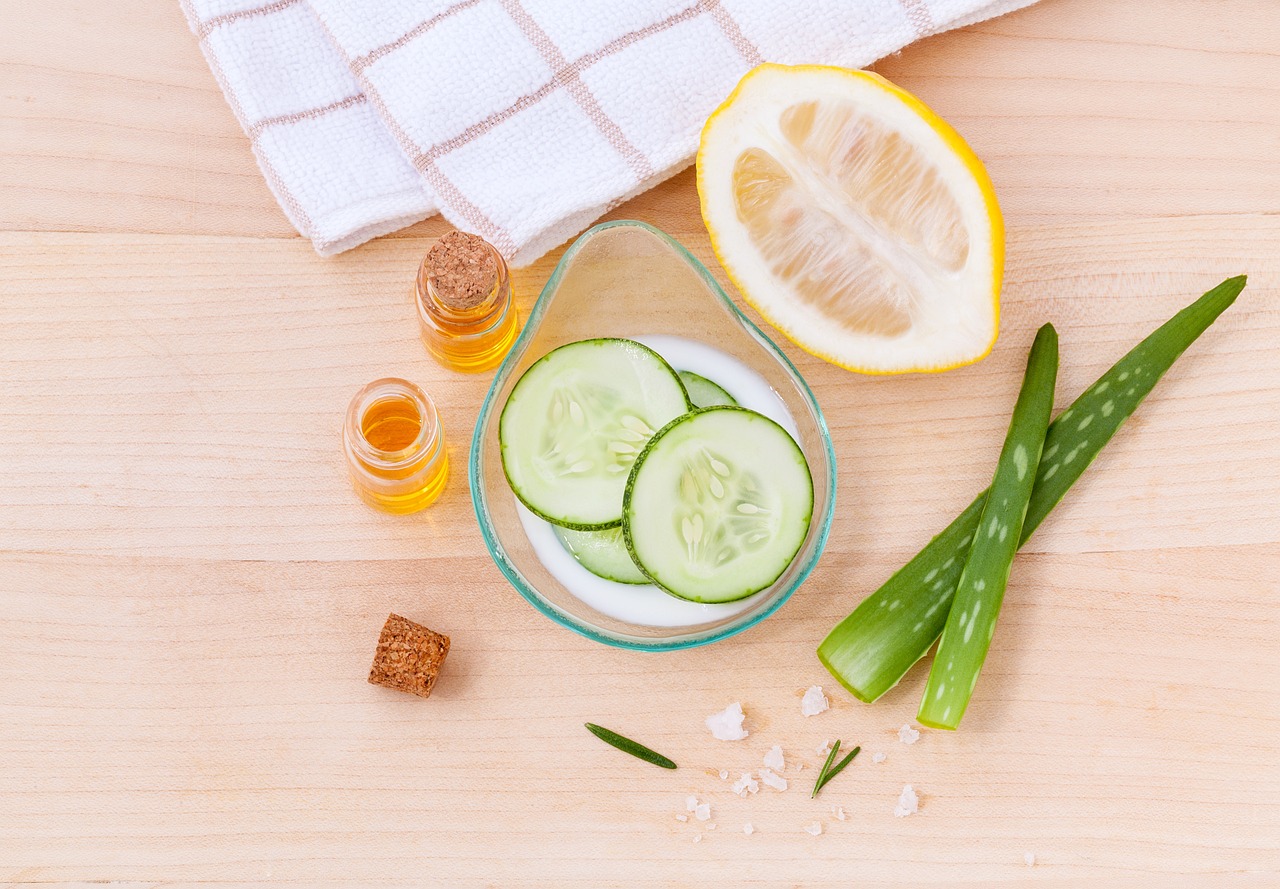
Consult a Dermatologist
If you have specific skin concerns or conditions, consult a dermatologist for personalized guidance and treatment options.
When it comes to matters of skin health, seeking the expertise of a dermatologist can be a game-changer. These medical professionals are specialized in diagnosing and treating a wide range of skin concerns and conditions, offering personalized guidance and tailored treatment options that can make a world of difference in your skin’s well-being.
One of the key advantages of consulting a dermatologist is their ability to provide a precise diagnosis. Skin conditions can be complex, with symptoms that sometimes overlap or mimic each other. A dermatologist’s trained eye can distinguish between various conditions, ensuring that you receive an accurate assessment of your skin’s health. This means you won’t waste time and money on treatments that may not be effective for your specific issue.
Furthermore, dermatologists have access to a vast array of treatment options. They can recommend medical-grade skincare products, prescribe topical or oral medications and even perform in-office procedures when necessary. Whether you’re dealing with acne, eczema, psoriasis or concerns related to aging skin, a dermatologist can offer evidence-based solutions tailored to your unique needs.
Beyond treatment, dermatologists are an invaluable source of knowledge and guidance. They can provide insights on preventive measures and long-term skincare routines to maintain and improve your skin health. They can also offer advice on lifestyle factors that may be contributing to your skin concerns, such as dietary choices, environmental influences or habits like smoking.
For those concerned about cosmetic aspects of their skin, such as wrinkles, sunspots or scarring, dermatologists can recommend a variety of cosmetic procedures, from Botox injections to laser therapies. These treatments are performed with precision and safety in mind, helping you achieve your desired aesthetic goals while maintaining the health and integrity of your skin.
In summary, when it comes to your skin’s health and appearance, a dermatologist is your go-to expert. Their specialized knowledge and access to advanced treatments can provide effective solutions for a wide range of skin concerns. So, if you have specific skin issues or simply want to enhance your skin’s health and beauty, don’t hesitate to consult a dermatologist for personalized guidance and expert care. Your skin will thank you for it.
For a comprehensive look at this subject, we invite you to read more on this dedicated page: Skin care: 5 tips for healthy skin – Mayo Clinic
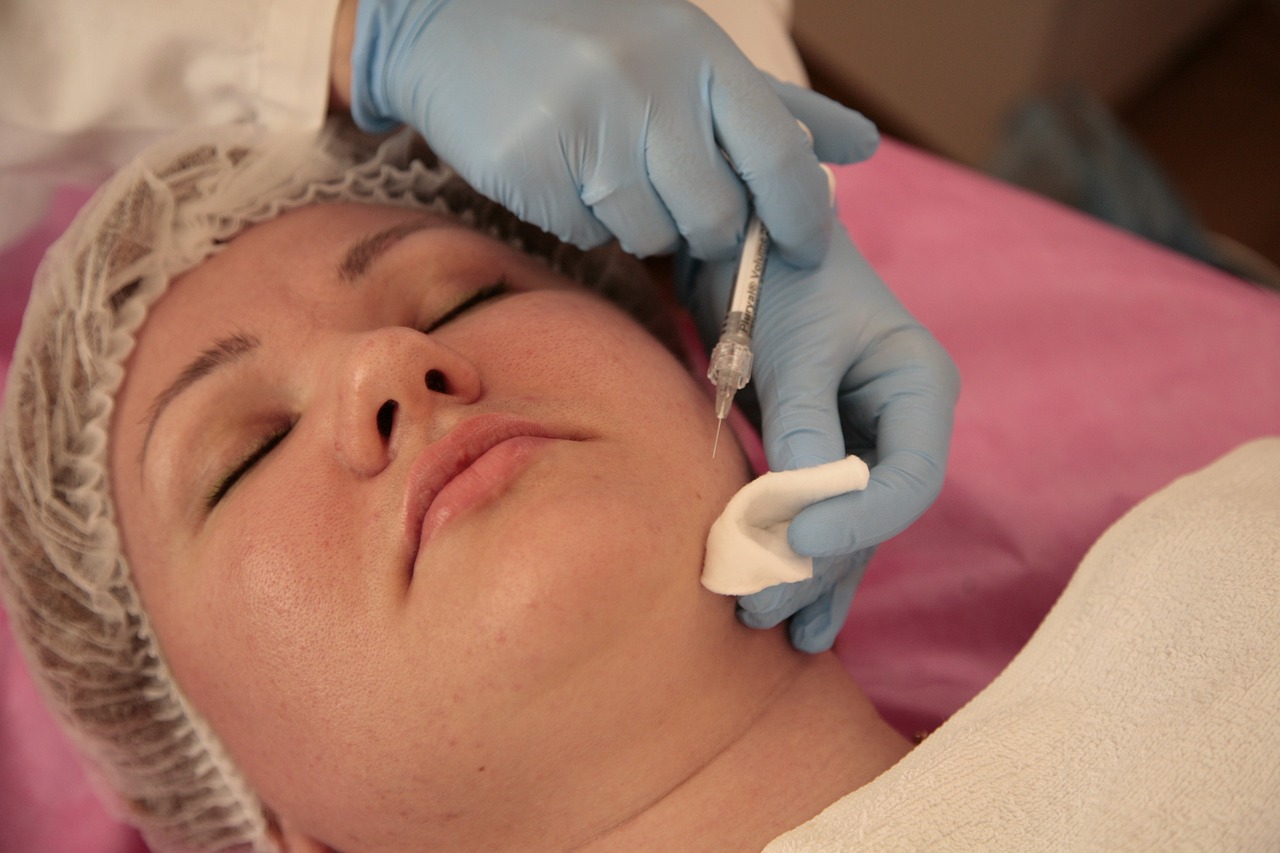
Hygiene and skin care are integral components of overall well-being. By nurturing healthy skin from head to toe, you not only support your body’s protective functions but also enhance your self-esteem and appearance. Incorporating proper hygiene and skin care practices into your daily routine is an investment in long-term skin health, ensuring that your skin remains radiant, resilient and comfortable throughout your life.
Hygiene and skincare are indeed essential pillars of comprehensive well-being and their impact extends far beyond mere aesthetics. By tending to the health of your skin, from head to toe, you embark on a journey that encompasses physical health, psychological well-being and a deep sense of self-care. Here’s an extended perspective on why embracing proper hygiene and skincare practices is a profound investment in your long-term health and personal growth:
1. Physical Health: Skin is your body’s front line of defense. Maintaining its health is paramount for warding off infections, allergies and environmental stressors. Effective skincare practices help keep your skin’s protective barrier intact, reducing the risk of skin issues and enhancing your overall physical health.
2. Confidence and Self-Esteem: A glowing complexion and healthy skin can significantly boost your self-esteem and confidence. When your skin looks and feels good, it can positively impact your self-perception and interactions with others. This newfound self-assuredness can empower you in both personal and professional spheres of life.
3. Psychological Comfort: Good hygiene practices, including regular cleansing and moisturizing, contribute to psychological comfort. Feeling clean and refreshed helps alleviate discomfort and promotes a sense of well-being. This comfort extends to better sleep quality, as a well-cared-for skin can reduce itching and discomfort that might disrupt sleep.
4. Anti-Aging Benefits: Proper skincare can slow down the aging process and reduce the appearance of fine lines, wrinkles and age spots. It preserves your skin’s elasticity and suppleness, allowing you to enjoy youthful-looking skin for longer. By investing in skincare early, you can delay the signs of aging and maintain a radiant complexion.
5. Holistic Self-Care: Incorporating hygiene and skincare practices into your daily routine fosters a culture of holistic self-care. It encourages you to prioritize self-love and self-respect, acknowledging that taking care of your physical health is a reflection of your self-worth. This commitment to self-care can radiate positivity throughout all aspects of your life.
6. Long-Term Benefits: Effective skincare is a long-term investment. By nurturing your skin today, you’re laying the foundation for resilient and radiant skin in the future. A consistent skincare regimen tailored to your unique needs can prevent and mitigate various skin issues that may arise with age.
7. Mind-Body Connection: The act of caring for your skin can have a profound impact on your mind. It’s a form of self-expression and mindfulness. As you engage in these practices, you connect with your body, fostering a deeper understanding of your physical self and nurturing the mind-body connection.
8. Emotional Well-Being: The comfort and confidence that stem from healthy skin can positively influence your emotional well-being. It can reduce stress and anxiety, enhance your mood and contribute to an overall sense of contentment and happiness.
In essence, embracing proper hygiene and skincare practices is a holistic journey that encompasses physical health, mental well-being and self-empowerment. It’s an investment in yourself, one that ensures your skin remains a vibrant canvas that reflects your inner vitality and self-assuredness throughout your life. By nurturing your skin from head to toe, you’re not only caring for your body but also cultivating a deeper sense of self-love and well-being that radiates to the world around you.
For a comprehensive look at this subject, we invite you to read more on this dedicated page: Cultural Religious Competence in Clinical Practice – StatPearls …
More links
You can also read more about this here: The Role of Moisturizers in Addressing Various Kinds of Dermatitis …
